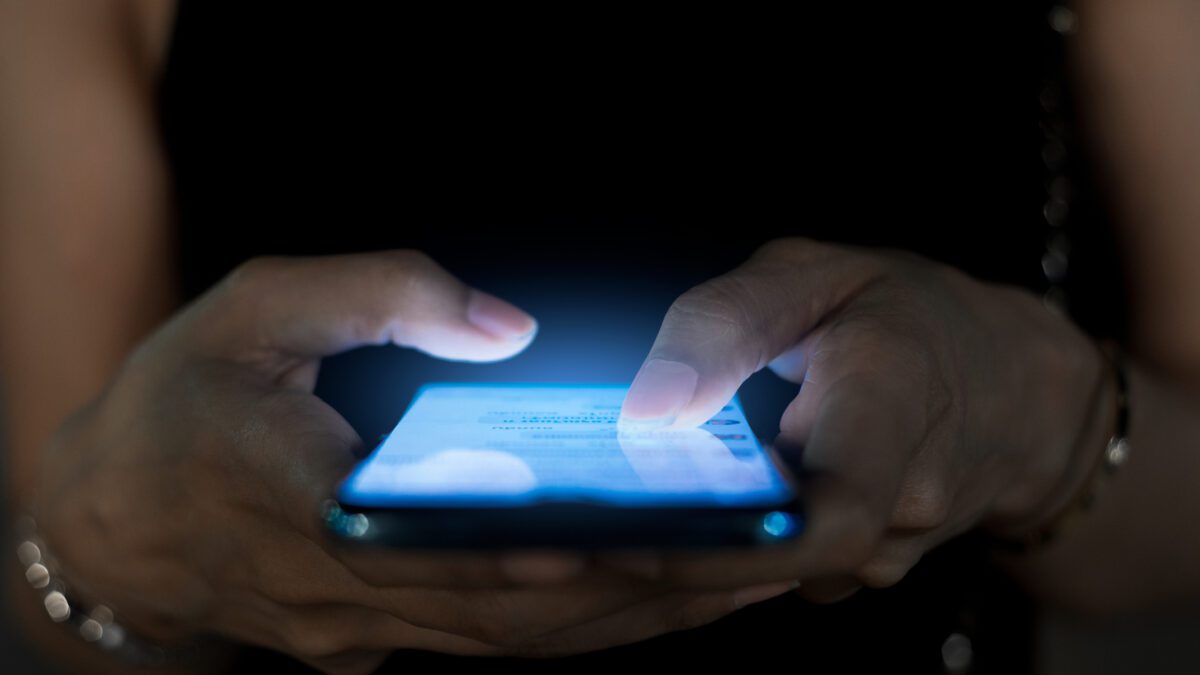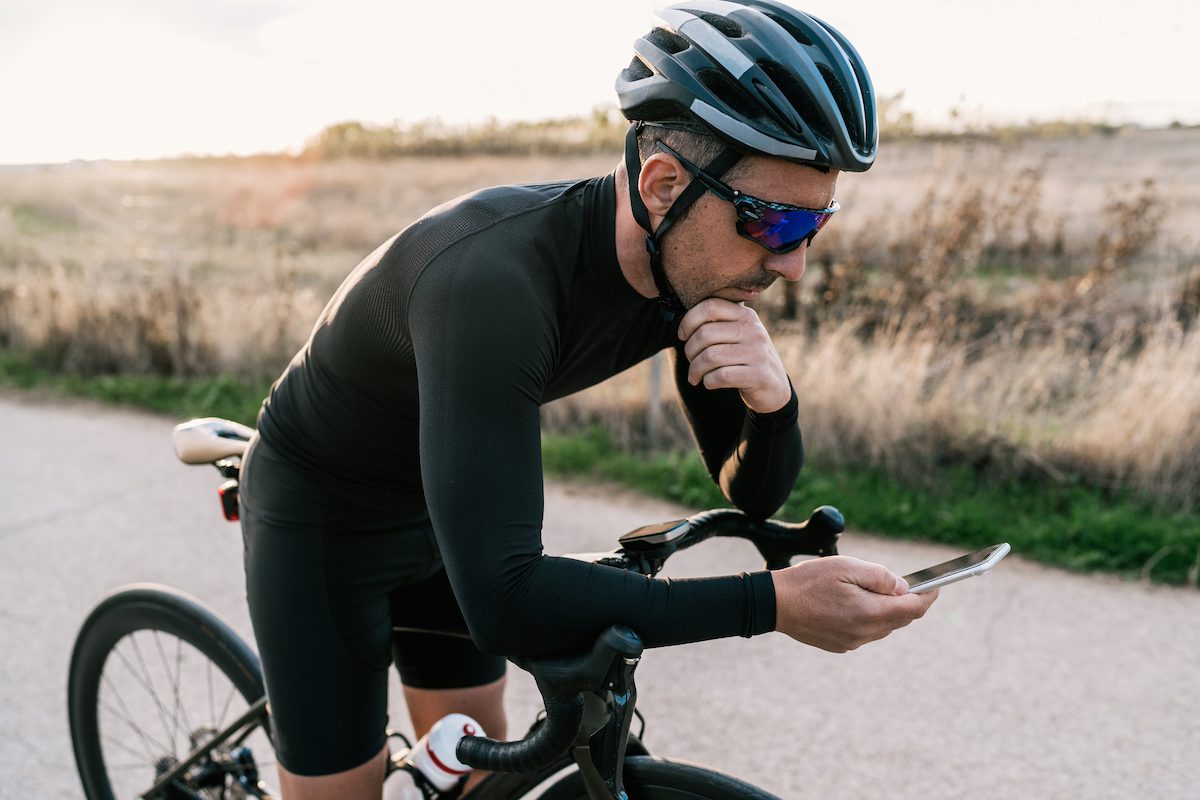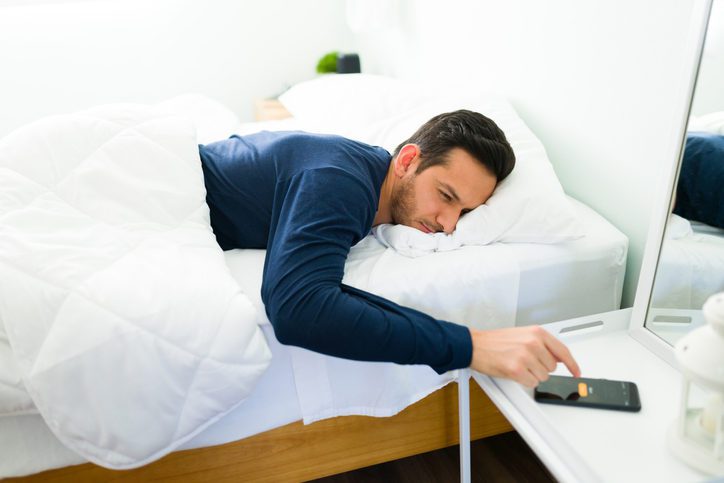Does using a smartphone make you slower?
Doomscrolling is not just a little mindless distraction
 Photo by:
Getty Images
Photo by:
Getty Images
Turning to a smartphone for mindless distraction while waiting is, at this point, a near-universal habit. That includes, for many of us, a little pre-race relaxation. Walk through the team area before a race and it is not at all uncommon to see racers scrolling on smartphones while resting their legs and waiting for the race to start. While it might take your mind off the stress of the race ahead, that habit might be costing you in other ways.
A group of studies across several sports show that spending time on smartphones before physical activity can have a detrimental effect on athletic performance. These effects range from slower reactions to increased mental fatigue and poorer decision-making.
Taken together, these studies’ findings call into question whether calming pre-race jitters with phone time is actually worth the various negative effects looking at a screen causes.
Smartphones and mental fatigue
Athletes are often celebrated for their physiological achievements but there is no sport in the world that doesn’t require a high level of mental focus to achieve success. With the growing awareness of how mental focus affects athletic performance, researchers are starting to look seriously at what impacts attention during an event.
In a 2019 study in Psychology of Sport and Exercise, researchers asked what impact smartphone app usage was having on pro football (soccer) players. The study compared how different durations of smartphone usage helped or hindered decision-making in passing.
Researchers subjected the players to 15 minutes, 30 minutes or 45 minutes of smartphone use. The researchers then used a Stroop task (for example, say the name of the colour of the following word: green) to assess the level of mental fatigue before having the athletes play a simulated soccer game for sport-specific decision-making analysis.
The conclusions are straightforward. While 15 minutes of smartphone use didn’t have a significant effect, anything longer than 30 minutes did. At the half-hour mark, smartphone app exposure caused measurable mental fatigue, which impaired the players’ performance in psychomotor tasks, like passing.
What are psychomotor tasks on bikes? Choices like when to break into a corner while riding in a pack, or down a mountain. How to react when a rider near you changes lines or puts in an acceleration. Any number of the infinite decisions that happen over the course of a race.
Does what you watch matter?
Modern smartphones are amazing pieces of technology, letting you access everything from social media to YouTube tutorials on any conceivable topic, mindfulness apps and even old-school phone functions. So does what you’re doing on your smartphone change the effect it has on your performance?
It appears so, according to a 2021 study of amateur boxers in Applied Neuropsychology. The study measured decision-making and explosive power (countermovement jump – CMJ). It gives more details about how phones affect athletic performance. It compared amateur boxers’ performance after playing video games, using social media and watching coaching videos.
The results are interesting. While social media use and playing video games both resulted in a decrease in decision-making performance, watching coaching videos didn’t have the same negative effect. But the study also found that no matter what you were doing on your phone, 30 minutes of screen time wasn’t good for explosive power. All three activities had the same negative effect on CMJ.
A similar 2023 study with pro soccer players also showed playing video games prior to a match resulted in mental fatigue and decreased decision-making.
Mental fatigue means real performance decreases
While several studies showed smartphone and social media use have a negative impact on mental fatigue and decision-making, other studies demonstrated real decreases in athletic performance. These studies focused on elite and recreational athletes.
A 2022 study in Perceptual and Motor Skills showed that the mental fatigue caused by 30 minutes of Instagram use prior to playing decreased visuomotor skills in high-level male volleyball players.
A 2021 study in the same journal using recreational athletes of both sexes showed that social media use made them feel more fatigued. It also showed that the perception of fatigue led to a real decrease in performance that couldn’t be explained by physiological causes.
Another 2020 study of high-level swimmers, male and female, also showed increased mental fatigue and decreased performance after 30 minutes of social media use. Interestingly, the study showed that the increased mental fatigue had the most effect in 100-m and 200-m events, with little measurable effect on a 50-m swim. The authors suggest that this performance decrease could be due to the perception of mental fatigue.
Screen time balance sheet
While none of these studies looked at cycling specifically, I can’t think of a single discipline of racing that doesn’t require high levels of mental focus. Racing for hours in the middle of a high-speed peloton, tactical racing on the track or the short but extreme focus of mountain biking all require a sharp mind and clear focus to prevent disaster.
There are all kinds of ways smartphones can be useful in bike racing. Downhill and enduro racers regularly use them to review practice footage before race runs. Other riders use them to remember course cues and team strategy before the start. So I’m not saying you should throw your phone in the garbage altogether or even lock it away for days leading into a race.
But this research does suggest you should limit how, and how long, you use your phone before riding. Reviewing a workout plan, race route or practice footage is still a great idea. Just make sure you keep your screen time well below 30 minutes.
What can you do instead of looking at your phone? Maybe more athletes should try knitting instead of scolling Instagram.


